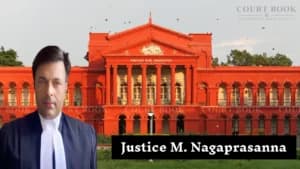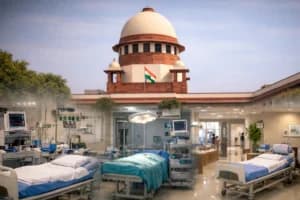In a landmark decision dated July 8, 2025, the Bombay High Court clarified that even though the Indian Penal Code (IPC) has been repealed and replaced by the Bharatiya Nyaya Sanhita (BNS), the Prevention of Money Laundering Act (PMLA) can still be enforced using predicate offences under the new code.
Delivering a detailed 37-page judgment, Justice Amit Borkar addressed critical concerns raised in a bail application filed by Nagani Akram Mohammad Shafi, who was arrested in a money laundering case involving ₹100 crore allegedly routed through 14 newly opened bank accounts.
“If the enforcement of the PMLA is disrupted just because the IPC has been replaced, the entire mechanism would come to a halt. That is clearly not what Parliament intended,” — Justice Amit Borkar
Background of the Case
The applicant was charged under BNS Sections 318(4) (cheating), 338 (forgery), and 340(2) (using forged documents). The defence argued that since the Schedule of the PMLA refers specifically to IPC sections, the Enforcement Directorate (ED) cannot invoke PMLA based on BNS provisions.
However, the court rejected this technical argument and held that Section 8(1) of the General Clauses Act, 1897 ensures that references to repealed laws (such as IPC) in any legislation are to be interpreted as references to their new counterparts, unless Parliament expresses a contrary intention.
“Such an interpretation would mean that serious offences like cheating, forgery, conspiracy, or extortion — although now found under BNS — cannot lead to money laundering prosecutions. That would defeat the very objective of PMLA.” — Justice Amit Borkar
PMLA’s Continuity Through BNS
Justice Borkar emphasized that the PMLA Schedule must be read dynamically, meaning its references to IPC provisions are not static or frozen in time. He ruled that these references now legally correspond to the appropriate sections in the BNS, ensuring continuity of enforcement.
The court clarified the distinction between legislation by reference and legislation by incorporation. It ruled that the PMLA refers to IPC provisions by reference, not incorporation, allowing it to automatically adapt to the replacement of IPC with BNS.
“References to IPC sections must now be read as referring to corresponding BNS sections. For example, Section 318(4) of BNS aligns with the old Section 420 of IPC on cheating,” — Bombay High Court
On Legal Absurdity and Public Interest
The judge warned that accepting the applicant’s interpretation would create a dangerous legal vacuum, allowing criminals to escape money laundering charges merely due to a change in section numbers or terminology.
He reaffirmed that courts must avoid interpretations that result in absurd consequences, especially when they threaten the effectiveness of crucial legislation like the PMLA.
“From July 1, 2024, if such logic were accepted, no one could be prosecuted under the PMLA — despite committing the same underlying crimes. That would be against public interest and legislative intent.” — Justice Borkar
Government’s Notification and the Role of Courts
The court also touched upon the notification issued by the Central Government on July 16, 2024, which clarified that references to IPC and other repealed codes should now be read as references to BNS and the new procedural codes. However, the court stressed that this notification has only declaratory value, and the real interpretive power lies with the judiciary through Section 8 of the General Clauses Act.
Justice Borkar ruled that such clarification, while helpful, does not by itself substitute legislation — only courts or Parliament can give binding legal effect to such substitutions.
The Bombay High Court concluded that:
- The PMLA Schedule continues to be valid and effective, even after the IPC's repeal.
- Offences listed in the IPC must now be understood as their equivalent BNS offences.
- The court rejected the bail plea of Nagani Akram Mohammad Shafi, affirming the ED’s jurisdiction under PMLA based on predicate offences under BNS.
“This judgment upholds the rule of law, preserves legislative intent, and ensures that enforcement of PMLA continues without interruption.” — Justice Amit Borkar
Case Title: Nagani Akram Mohammad Shafi vs Union of India & Anr.
Bombay High Court, Bail Application No. 728 of 2025














